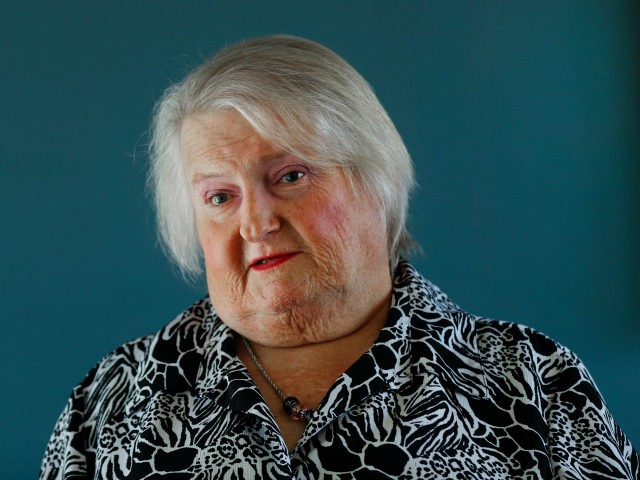The United States Supreme Court will hear the case of a transgender individual next week. He lost a job as a funeral director after announcing he would be living as a woman and going by the name Aimee Stephens instead of Arthur.
The Associated Press (AP) interviewed Stephens and headlined the story ‘Transgender woman in Supreme Court case is ‘happy being me.’”
The case revolves around “whether federal civil rights law that bars job discrimination on the basis of sex protects transgender people. Other arguments that day deal with whether the same law covers sexual orientation.”
“The 58-year-old Stephens plans to attend the arguments despite dialysis treatments three times a week to deal with kidney failure and breathing problems that require further treatment,” AP reported. “She used a walker the day she spoke to AP at an LGBT support center in the Ferndale suburb north of Detroit.”
“I felt what they did to me wasn’t right,” Stephens said in the interview. “In fact, it was downright wrong.”
“But I also realized it wasn’t just me, that there were others in the world facing the same tune,” Stephens said.
AP noted that Thomas Rost, owner of the funeral home where Stephens worked, said Congress can change the law to protect LGBT people instead of a court ruling that could eventually “prohibit sex-specific sleeping facilities in shelters, as well as showers, restrooms, and locker rooms.”
Ironically, Michigan’s civil rights commission decided in 2018 that existing discrimination laws do apply to transgender people but would not help Stephens, who was fired in 2013.
AP reported about how Stephens’ life choices led to the Supreme Court case:
Stephens was once a Baptist minister in North Carolina and she said she always liked “comforting people in need.” She spent nearly six years as a licensed funeral home director and embalmer at the company’s Garden City, Michigan, location. Stephens, then known as Anthony Stephens, came to work every day in a dark suit, white shirt, and tie.
At the end of July 2013, Stephens met with Rost in the home’s chapel and handed him a letter in which Stephens revealed she had struggled with gender most of her life and had, at long last, “decided to become the person that my mind already is.” Stephens wrote, “As distressing as this is sure to be to my friends and some of my family, I need to do this for myself and for my own peace of mind and to end the agony in my soul.”
But when she returned from vacation, Stephens was let go and filed a complaint with the federal Equal Employment Opportunity Commission, which sued the funeral home.
The case worked its way through lower courts and is now on the docket of the High Court.
AP included a comment from Rost’s attorney, John Bursch, in its report.
“Tom [Thomas Rost] has gone out and gotten groceries for widows who were incapable of doing it,” Bursch said. “To say this is somehow rolling back respect for people is just a false premise,” Bursch said.
“In its complaint, the EEOC claimed that sex discrimination includes adverse employment actions against employees who identify as transgender or do not conform to gender stereotypes,” the case document states.
The Supreme Court will hold oral arguments on R.G. & G.R. Harris Funeral Homes, Inc. v. Equal Opportunity Employment Commission on October 8:
Follow Penny Starr on Twitter

COMMENTS
Please let us know if you're having issues with commenting.